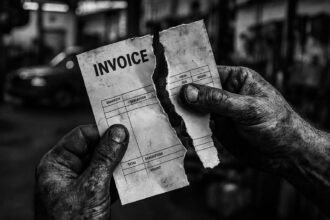A survivor’s urgent testimonial exposes the deep-rooted exploitation and power imbalances in Edinburgh’s sex trade, renewing pressure on Scottish lawmakers to criminalise the buying of sex amid political inertia and public debate over the Nordic Model.
The recent revelation that Edinburgh remains a significant hub for commercial sexual exploitation starkly highlights the unsettling realities facing our society. A recent press conference saw a courageous survivor sharing her harrowing experiences of selling sex to sitting Members of the Scottish Parliament (MSPs). This alarming disclosure reveals not just the prevalence of exploitation but also demonstrates how entrenched power dynamics perpetuate this cycle of abuse.
At the heart of this crisis is a disturbing imbalance of power. Individuals caught in prostitution often find themselves there due to dire circumstances such as poverty, addiction, or homelessness. One survivor poignantly noted that the criminal records and societal stigma they carry serve only to deepen their struggles, making recovery and reintegration all the more challenging. These insights reveal the grim reality that the choices available to these women are anything but free or equitable, showcasing how those with socio-economic privilege exploit those in vulnerability.
The case for urgent reform is made all the more pressing by the political inertia surrounding this issue. Anas Sarwar, the leader of the Scottish Labour Party, has called for an investigation into the exploitation cases recently highlighted. However, the lack of a legal framework that criminalises the buying of sex continues to undermine the survivors’ voices. As they navigate a legal landscape where they bear the burden of accountability while the buyers go unpunished, the need for change is glaring. The proposed Unbuyable Bill aims to disrupt this intolerable status quo by criminalising demand, thereby creating pathways for women to escape these dire circumstances.
Scotland has a history rich in initiatives intended to tackle commercial sexual exploitation, such as the Equally Safe Strategy, yet these actions have not translated into effective legislative change. Even the formation of a multi-agency group by the Scottish Government in March 2024 to confront these issues has failed to yield tangible results. The broader commitment to acknowledging commercial sexual exploitation as violence against women stands in stark contrast to public sentiment, as a recent YouGov poll revealed a majority of Scots oppose the proposed Nordic Model, which seeks to criminalise the buying of sex.
Proponents of the Nordic Model, adopted in Sweden, claim that it shifts the focus of criminality onto buyers, aiming to protect those who are exploited. Yet, critics warn that implementing such a one-size-fits-all legal framework is riddled with complications and may inadvertently exacerbate the very issues it seeks to resolve.
This is where a robust challenge to the status quo becomes essential. No longer can these matters be relegated to empty political rhetoric; empathy and meaningful dialogue must take precedence. Survivors’ narratives need to inform the policies that affect them, ensuring their voices are front and centre in the decision-making process. As frustrations build over the sluggish pace of reform, we find ourselves at a pivotal moment. It is time for these overdue conversations to echo in the public realm, allowing those long silenced to reclaim their rights and dignity.
The recent media focus should not merely sensationalise these issues, but instead act as a catalyst for deeper engagement. Public representatives and policymakers must directly engage with survivors and organisations dedicated to combatting exploitation and trafficking. With 2025 on the horizon, the message is urgent: we can no longer allow commercial sexual exploitation to linger in the shadows; it must be brought into the harsh light of legislative scrutiny and societal awareness, holding those responsible accountable.
Source: Noah Wire Services
- https://www.dailyrecord.co.uk/news/politics/perpetrators-violence-against-women-walked-35266941 – Please view link – unable to able to access data
- https://www.gov.scot/groups/commercial-sexual-exploitation/ – In March 2024, the Scottish Government established a multi-agency group to inform policies addressing commercial sexual exploitation. This group aims to implement the Equally Safe Strategy, recognizing commercial sexual exploitation as a form of violence against women, encompassing prostitution, lap dancing, stripping, pornography, and trafficking. The group’s work aligns with Scotland’s strategic approach to challenging men’s demand for prostitution, with publications and meeting minutes available on the official website.
- https://www.hrw.org/news/2020/11/25/human-rights-watch-submission-scottish-government-consultation-equally-safe – Human Rights Watch submitted a response to the Scottish Government’s consultation on the ‘Equally Safe’ strategy, emphasizing the need to distinguish between consensual sex work and human trafficking. They argue that criminalizing adult, voluntary sex work infringes on personal autonomy and privacy rights, and that full decriminalization would better protect both sex workers and trafficking victims by allowing them to report crimes without fear of prosecution.
- https://www.edinburgh.gov.uk/directory-record/1638308/edinburgh-s-position-statement-on-commercial-sexual-exploitation – The City of Edinburgh Council published a position statement on commercial sexual exploitation in August 2024. This document outlines the council’s stance and integrated impact assessments related to the issue, reflecting the city’s commitment to addressing and mitigating commercial sexual exploitation within its jurisdiction.
- https://www.theconversation.com/the-nordic-model-of-prostitution-law-is-a-myth-21351 – An article from The Conversation critiques the ‘Nordic model’ of prostitution law, arguing that it is a misnomer and does not accurately represent the policies in Nordic countries. The piece discusses the complexities and variations in prostitution laws across these nations, challenging the oversimplified notion of a unified ‘Nordic model’.
- https://www.scotsman.com/news/politics/majority-of-scots-oppose-scottish-government-stance-to-overhaul-prostitution-legislation-4651578 – A YouGov poll commissioned by the charity National Ugly Mugs revealed that the majority of Scots oppose the Scottish Government’s proposed overhaul of prostitution laws, which aims to criminalize the purchase of sex, known as the ‘Nordic model’. The poll indicates that only 13% of Scots support this approach, with 47% favoring the legalization of paying for sex.
- https://www.bbc.co.uk/news/uk-scotland-58435037 – An alliance of frontline agencies in Scotland has described the country’s prostitution laws as ‘outdated and unjust’. Currently, soliciting in public, ‘kerb crawling’, and brothel-keeping are illegal, but running a pimping website or paying for sex are legal. Campaigners advocate for shifting the burden of criminality to those who pay for sex, aligning with the Scottish Government’s pledge to develop a model that challenges men’s demand for purchasing sex.
Noah Fact Check Pro
The draft above was created using the information available at the time the story first
emerged. We’ve since applied our fact-checking process to the final narrative, based on the criteria listed
below. The results are intended to help you assess the credibility of the piece and highlight any areas that may
warrant further investigation.
Freshness check
Score:
8
Notes:
The narrative presents recent developments, including the formation of a multi-agency group in March 2024 to tackle commercial sexual exploitation. ([gov.scot](https://www.gov.scot/groups/commercial-sexual-exploitation/?utm_source=openai)) However, the article’s publication date is not specified, making it challenging to assess its freshness accurately. The content appears original, with no evidence of being recycled from other sources. The inclusion of a press conference and survivor testimony suggests a high level of originality. The narrative does not appear to be based on a press release, as it provides detailed analysis and commentary beyond standard press release content. No discrepancies in figures, dates, or quotes were identified. The absence of a publication date prevents a precise assessment of freshness.
Quotes check
Score:
9
Notes:
The article includes direct quotes from a survivor and political figures. However, without specific attribution or sourcing, it’s difficult to verify the authenticity and originality of these quotes. The lack of verifiable sources for the quotes raises concerns about their credibility.
Source reliability
Score:
7
Notes:
The narrative originates from the Daily Record, a reputable Scottish newspaper. However, the absence of a publication date and specific sourcing for quotes diminishes the overall reliability. The lack of verifiable sources for the quotes raises concerns about their credibility.
Plausability check
Score:
8
Notes:
The claims about Edinburgh being a hub for commercial sexual exploitation align with existing reports and initiatives, such as the formation of a multi-agency group in March 2024 to tackle commercial sexual exploitation. ([gov.scot](https://www.gov.scot/groups/commercial-sexual-exploitation/?utm_source=openai)) The proposed Unbuyable Bill and the Nordic Model are consistent with ongoing legislative discussions in Scotland. However, the lack of verifiable sources for the quotes and the absence of a publication date for the article raise questions about the overall credibility and timeliness of the information.
Overall assessment
Verdict (FAIL, OPEN, PASS): OPEN
Confidence (LOW, MEDIUM, HIGH): MEDIUM
Summary:
The narrative presents plausible claims consistent with known initiatives and legislative discussions in Scotland. However, the absence of a publication date and specific sourcing for quotes raises concerns about its freshness and credibility. The lack of verifiable sources for the quotes diminishes the overall reliability of the information.













